- You are here:
- Home »
- Food Substitutes
- » Best Substitutes For Sugar
Best Substitutes For Sugar
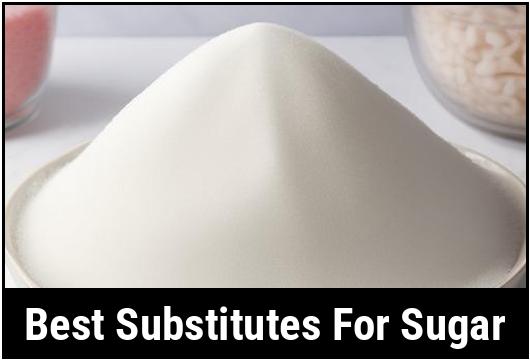
Sugar is a common ingredient used in many recipes, but its high calorie content and potential health risks have led many people to look for healthier alternatives. Luckily, there are several substitutes for sugar that can satisfy your sweet tooth while providing additional health benefits. In this article, we will explore the best substitutes for sugar, discuss their advantages and disadvantages, and provide tips on how to choose the right substitute for your needs.
Key Takeaways
- Sugar substitutes can help reduce calorie intake and maintain blood sugar levels.
- Natural sweeteners like honey and maple syrup offer nutritional value along with sweetness.
- Artificial sweeteners like stevia and sucralose provide zero calories but may have a slightly different taste.
- It is important to choose the right substitute based on your dietary needs and personal taste preferences.
Why You Need A Substitute For Sugar
Sugar, especially in excessive amounts, can have negative effects on our health. It is widely known that consuming too much sugar can lead to weight gain, increased risk of chronic diseases like diabetes and heart disease, and dental issues. Additionally, sugar can cause energy crashes and affect blood sugar levels, leaving you feeling tired and sluggish.
Using a substitute for sugar can help mitigate these risks while still allowing you to enjoy the sweetness in your favorite foods and beverages. Substitutes can help reduce calorie intake, making them suitable for weight management goals. They can also be a good option for those with diabetes or those who need to monitor their blood sugar levels.
Types Of Substitutes For Sugar
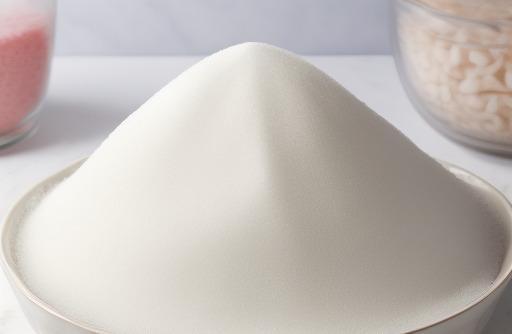
When it comes to sugar substitutes, there are two main categories: natural and artificial. Natural substitutes are derived from plant sources and often contain additional nutrients, while artificial substitutes are chemically produced and provide sweetness without the added calories. Let’s take a closer look at the different types of substitutes:
Natural Substitutes
-
Honey: Honey is a popular natural sweetener that offers a distinct flavor. It contains vitamins, minerals, and antioxidants, making it a healthier option compared to regular sugar. However, it is important to note that honey is still high in calories, so it should be consumed in moderation.
-
Maple Syrup: Maple syrup is another natural sweetener that is rich in antioxidants and minerals like zinc and manganese. It has a unique, caramel-like flavor and can be used in various recipes. Again, moderation is key due to its high calorie content.
-
Stevia: Stevia is a sugar substitute derived from the leaves of the stevia plant. It is incredibly sweet, with zero calories and a low impact on blood sugar levels. Stevia is available in both powdered and liquid forms and can be used in a wide range of recipes. It is important to note that some people find that stevia has a slightly bitter aftertaste.
-
Monk Fruit Extract: Monk fruit extract is made from the juice of the monk fruit and is a natural zero-calorie sweetener. It is much sweeter than sugar, so a small amount can go a long way. Like stevia, it may have a slight aftertaste, but many find it to be a suitable replacement for sugar.
-
Coconut Sugar: Coconut sugar is derived from the sap of the coconut palm. It has a lower glycemic index compared to regular sugar, meaning it has a smaller impact on blood sugar levels. It also contains small amounts of nutrients like iron, zinc, and calcium.
Artificial Substitutes
-
Sucralose: Sucralose is an artificial sweetener that is derived from sugar. It is approximately 600 times sweeter than sugar and provides zero calories. It is heat-stable and can be used in baking. However, some people may find that it has a slightly different taste compared to sugar.
-
Aspartame: Aspartame is another commonly used artificial sweetener that is approximately 200 times sweeter than sugar. It is often used in diet sodas and other low-calorie products. Aspartame is not suitable for baking, as it loses its sweetness when exposed to high temperatures. It should also be avoided by those with phenylketonuria (PKU), a rare genetic disorder.
-
Acesulfame Potassium: Acesulfame potassium, often referred to as Ace-K, is commonly found in low-calorie and sugar-free products. It is heat-stable and can be used for baking. However, it is important to note that some people may notice a slight metallic aftertaste when using Ace-K.
Best Substitutes For Sugar
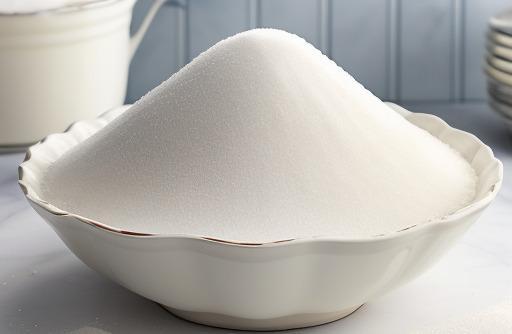
Now that we have explored the different options, let’s discuss the best substitutes for sugar based on various factors such as taste, versatility, and nutritional value.
-
Stevia: Stevia is an excellent choice for those looking to reduce their calorie intake and avoid the spike in blood sugar levels caused by sugar consumption. It has a mild sweetness and can be used in a variety of recipes, including beverages and baked goods. Stevia does have a slightly bitter aftertaste, so it might not be the best option for those who prefer a sweeter taste.
-
Honey: Honey not only adds sweetness but also brings a unique flavor to your recipes. It can be used as a sweetener in beverages, sauces, and dressings. While honey does contain more calories than sugar, it offers additional nutritional benefits. Choose raw and unprocessed honey whenever possible for the highest quality and maximum health benefits.
-
Maple Syrup: If you enjoy a rich, caramel-like flavor, maple syrup is an excellent choice. It can be used as a topping for pancakes or waffles, as a sweetener in baked goods, or even in savory dishes. However, since maple syrup is high in calories, moderation is key.
-
Coconut Sugar: Coconut sugar is a great alternative for those who prefer to use a natural sweetener that has a lower impact on blood sugar levels. It has a taste similar to brown sugar and works well in recipes that call for granulated sugar. Keep in mind that coconut sugar does not dissolve as easily as regular sugar, so it may not be the best choice for recipes that require a smooth texture.
-
Sucralose: For those who want the sweetness of sugar without the added calories, sucralose is a viable option. It is heat-stable and can be used in baking. However, some people may find that it has a slightly different taste compared to sugar, so it may take some experimentation to find the right balance.
Choosing The Right Substitute For Sugar
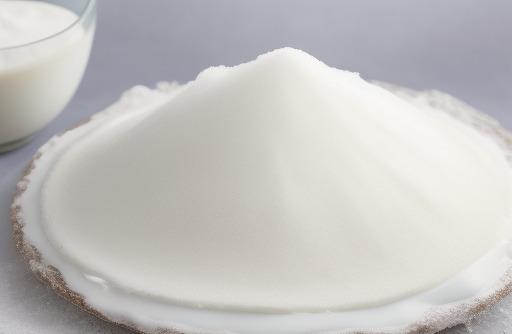
When choosing a substitute for sugar, it is important to consider your dietary needs and personal taste preferences. Here are a few factors to consider:
-
Calorie Content: If you are looking to reduce your overall calorie intake, opt for zero-calorie or low-calorie substitutes like stevia, sucralose, or monk fruit extract.
-
Glycemic Impact: For those with diabetes or those who need to monitor their blood sugar levels, choosing substitutes with a lower glycemic impact like stevia or coconut sugar can be beneficial.
-
Taste Preference: Consider the taste profile of the substitute. Some natural sweeteners like honey and maple syrup have distinctive flavors that can enhance certain recipes. If you prefer a taste that closely resembles sugar, artificial sweeteners may be the best choice.
-
Versatility: Think about the variety of recipes you typically prepare and choose a substitute that works well across different cooking and baking applications. Make sure the substitute can withstand high temperatures if you plan on using it in baked goods.
-
Nutritional Value: If you are looking for additional health benefits, natural substitutes like honey, maple syrup, and coconut sugar offer small amounts of vitamins, minerals, and antioxidants.
Experiment with different substitutes to find the one that suits your needs and taste preferences best. Remember that some trial and error may be involved, and it may take a few attempts to achieve the desired sweetness and texture in your recipes.
Pro Tip: When using natural sweeteners like honey or maple syrup in baking, reduce the liquid content slightly to account for the added moisture in the recipe.
Cooking With Substitutes For Sugar
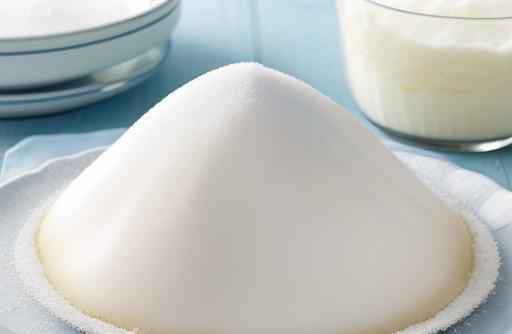
Using substitutes for sugar in cooking and baking can require slight adjustments to maintain the same taste and texture. Here are some tips for successfully incorporating substitutes into your recipes:
-
Measure Properly: Follow the recommended conversion ratios when substituting sugar with an alternative. The sweetness level can vary between different sweeteners, so it’s important to measure accurately. Keep in mind that some substitutes may be sweeter than sugar, so you may need less than the suggested amount.
-
Adjust Liquid Content: Some substitutes, like honey or maple syrup, contain additional moisture. When using these substitutes, reduce the liquid content slightly to maintain the desired texture of your recipe.
-
Experiment and Taste: It’s crucial to taste the recipe as you go when using a substitute for the first time. Adjust the sweetness level if needed, and don’t be afraid to experiment and make notes for future reference.
-
Consider Baking Temperatures: If you plan on baking with a sugar substitute, choose a sweetener that is heat-stable, such as stevia, coconut sugar, or sucralose. Avoid using substitutes like aspartame, which lose their sweetness when exposed to high temperatures.
Recipes Using Substitutes For Sugar

Here are a few tasty recipes that feature some of the best substitutes for sugar:
1. Stevia-Sweetened Lemonade
Ingredients:
- 4 cups water
- 1 cup freshly squeezed lemon juice
- 1 teaspoon stevia powder
- Ice cubes
Instructions:
- In a pitcher, combine the water, lemon juice, and stevia powder. Stir well.
- Taste and adjust the sweetness by adding more stevia if desired.
- Serve over ice and enjoy!
2. Honey-Glazed Salmon
Ingredients:
- 4 salmon fillets
- 3 tablespoons honey
- 2 tablespoons soy sauce
- 2 teaspoons grated fresh ginger
- 1 garlic clove, minced
- Salt and pepper to taste
Instructions:
- Preheat the oven to 400°F (200°C) and line a baking sheet with parchment paper.
- In a small bowl, whisk together the honey, soy sauce, ginger, and garlic.
- Place the salmon fillets on the prepared baking sheet and brush the glaze over the salmon.
- Sprinkle with salt and pepper.
- Bake for 15-20 minutes or until the salmon is cooked through and glazed.
- Serve hot and enjoy!
3. Coconut Sugar Chocolate Chip Cookies
Ingredients:
- 1 cup unsalted butter, softened
- 1 cup coconut sugar
- 2 large eggs
- 2 teaspoons vanilla extract
- 2 cups all-purpose flour
- 1 teaspoon baking powder
- 1/2 teaspoon salt
- 1 1/2 cups chocolate chips
Instructions:
- Preheat the oven to 350°F (175°C) and line a baking sheet with parchment paper.
- In a large bowl, cream together the butter and coconut sugar until smooth.
- Beat in the eggs one at a time, then stir in the vanilla extract.
- In a separate bowl, whisk together the flour, baking powder, and salt. Gradually add the dry ingredients to the butter mixture and mix well.
- Stir in the chocolate chips.
- Drop rounded tablespoonfuls of dough onto the prepared baking sheet.
- Bake for 10-12 minutes or until the edges are lightly golden.
- Allow the cookies to cool on the baking sheet for a few minutes before transferring them to a wire rack to cool completely.
Storage And Shelf Life Of Substitutes

The storage and shelf life of sugar substitutes can vary depending on the type and form. Here are some general guidelines:
- Honey: Store honey in a cool, dry place away from direct sunlight. It can last indefinitely, but it may crystallize over time. To liquify crystallized honey, gently warm it in a hot water bath.
- Maple Syrup: Keep maple syrup in the refrigerator after opening. It can last up to a year when stored properly.
- Stevia: Store stevia in a cool, dry place. The powdered form typically has a long shelf life, while the liquid form may need refrigeration.
- Monk Fruit Extract: Monk fruit extract is shelf-stable and does not require refrigeration. Follow the instructions on the product packaging for specific storage guidelines.
- Coconut Sugar: Coconut sugar should be stored in an airtight container in a cool, dry place. It has a long shelf life, similar to regular sugar.
- Artificial Sweeteners: Most artificial sweeteners have a long shelf life and do not require refrigeration. Follow the instructions provided by the manufacturer for proper storage.
It is important to check the expiration dates and storage instructions on the packaging of the specific brand of sweetener you are using to ensure the best quality and taste.
Conclusion
Choosing a substitute for sugar can help you reduce calorie intake, maintain blood sugar levels, and avoid the negative health effects associated with excessive sugar consumption. Natural substitutes like stevia, honey, maple syrup, and coconut sugar offer a range of flavors and additional nutrients. Artificial sweeteners like sucralose and aspartame provide sweetness without the added calories. Experiment with different substitutes to find the one that suits your taste preferences and dietary needs best. When using substitutes in recipes, adjust the sweetness level and consider factors like heat stability and texture. With the right knowledge and a bit of creativity, you can enjoy your favorite sweet treats while prioritizing your health.
FAQS
What Are Some Good Natural Substitutes For Sugar?
There are several natural sweeteners you can use as a substitute for sugar, such as honey, maple syrup, and molasses. These sweeteners are not only healthier alternatives to traditional sugar, but they also add a unique flavor to your dishes.
Can I Use Artificial Sweeteners As A Substitute For Sugar?
Yes, you can use artificial sweeteners like stevia, sucralose, and aspartame as a substitute for sugar. However, keep in mind that these sweeteners may have a different taste compared to natural sweeteners and can have side effects if consumed in large quantities.
Are There Any Fruits That I Can Use As A Substitute For Sugar?
Yes, there are several fruits that can be used as a sweetener, such as dates, bananas, and applesauce. These fruits add a sweet flavor to your dishes and are also a great source of vitamins and minerals.
Can I Use Coconut Sugar As A Substitute For Sugar?
Yes, coconut sugar is a natural sweetener that is a great substitute for sugar. It has a low glycemic index, which means it won’t cause a spike in your blood sugar levels like regular sugar would.
How Can I Reduce My Sugar Intake Without Using Any Sweeteners?
One way to reduce your sugar intake is to use spices like cinnamon and nutmeg to add flavor to your dishes. These spices have a natural sweetness and can be used in place of sugar in many recipes. Additionally, you can try adding more fruits and vegetables to your diet, which will naturally help to satisfy your sweet tooth.
Sources
About the Author Jenny
I'm Jenny, a housewife with an unwavering passion for food. My culinary journey began with my grandmother's kitchen, and it's now a full-fledged food blog. I've turned my love for cooking into a creative outlet, sharing recipes and stories with a global community of fellow food enthusiasts. It's proof that being a housewife can also mean pursuing your passions and savoring life's delectable moments.
